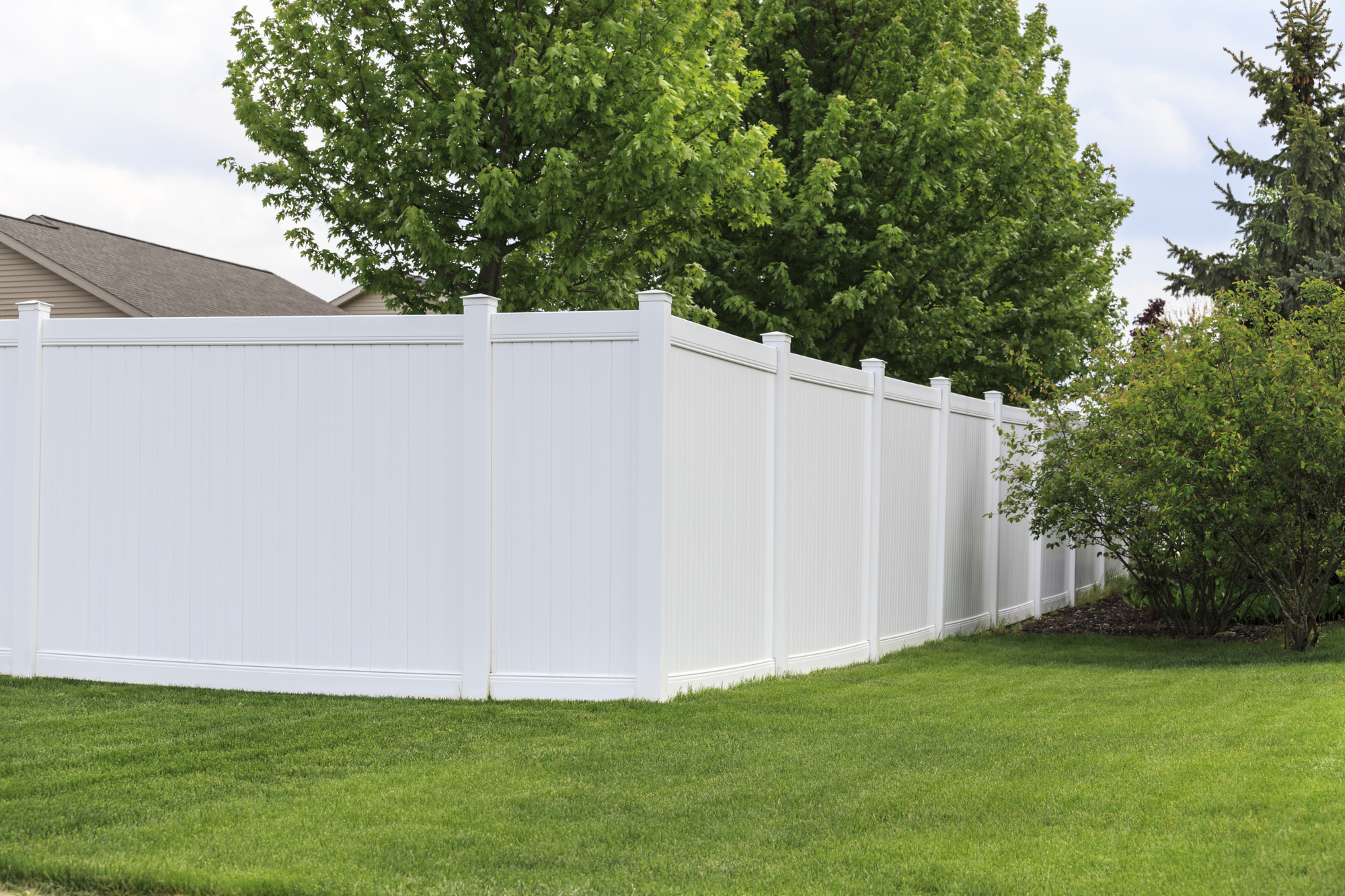How to Clean a Vinyl Fence

Did you know that you are supposed to clean your vinyl fence every twelve to fourteen months? If your fence gets dirty fast, you may want to clean it even more often than that.
Not cleaning your fence can result in hard-to-remove stains and caked-on dirt. During California’s humid winters, it is also common for mold to accumulate on vinyl fencing.
Learning how to clean your vinyl fence is the best way to combat these issues. But you can’t use just any household chemical to clean vinyl. You need to know the right products and techniques to use.
In this guide, we explain how to clean your vinyl fence to prevent damage and maximize your cleaning efforts.
How Often Should You Really Clean a Vinyl Fence?
We mentioned that you should clean your vinyl fence annually or at least biennially (once every two years), but you should really clean it more regularly than that. At least once per week, you should give your fence a quick wash.
Save thorough cleaning jobs for once every year or so. Thorough fence cleaning should also take place if you notice mold or significant grime building up on the vinyl.
Performing routine cleaning will ensure you get the most out of your investment, as it can extend fence lifespan. A clean fence will also boost your home’s curb appeal, which can increase its value.
Products to Use for Vinyl Fence Cleaning
Cleaning vinyl is relatively simple. Vinyl is non-porous, meaning most of the dirt and stains you see are only at the surface level. To get started with cleaning your fence, you need the following items:
- A hose or another source of water
- A cleaning solution in a spray bottle
- A microfiber towel
- Mold-removing cleaner (if needed)
Most of these items are straightforward. But what kind of cleaning products can you use on your fence? Here are some ideas for homemade and store-bought fence cleaners that will not damage the vinyl or your grass.
Soap and Water
The simplest option for a vinyl fence cleaner is a mixture of soap and warm water. You can use dish soap or castile soap, which is a mild vegetable-based soap that is biodegradable and non-toxic.
Dip a microfiber towel into a solution of water and your soap of choice. Gentle scrub away any caked-on stains. Use the water hose to spray down the remaining slats and wash away the dirt.
Vinegar and Water
Sometimes, soap and water are not enough to clean a vinyl fence. This is especially true if you are dealing with mold. A mixture of vinegar and water should be enough to do the trick.
Combine one cup of white vinegar with up to a gallon of water. Fill a spray bottle with the solution and coat the troublesome areas. Allow the vinegar solution to sink in for at least 15 minutes.
Next, grab your microfiber towel and scrub at the stains, dirt, or mold. If the towel is not enough, try using a soft-bristled brush. Avoid hard bristle brushes, as they may damage your fence’s finish.
Once you have cleaned away the grime and gunk, spray down the fence with your garden hose. Make sure you do not leave any vinegar on the surface. It could eat away at the finish.
Eco-Friendly Cleaners
There are dozens of eco-friendly cleaning products on the market. Simple Green offers multiple options, including those specifically formulated for use on vinyl fences. Mold Armor is another excellent choice that also fights mold.
How to Clean a Vinyl Fence: FAQs
Now that we’ve explained how to clean your vinyl fence, we want to clear up some common questions we get. Keep reading for answers to your top home fence cleaning questions.
What Is the Best Thing to Clean Vinyl Fencing With?
The best cleaning product to use for vinyl fencing is a natural one. Solutions made with natural soaps (e.g., castile soap) or vinegar are strong enough to cut through dirt and even mold, but they are also non-toxic.
Non-toxic cleaners are crucial if you want to clean a vinyl fence without damaging your lawn. Many chemicals can kill your grass, leading to unsightly brown patches.
Can You Power Wash a Vinyl Fence?
Yes, you can absolutely use a power washer to clean your vinyl fence. In fact, a power washer may be just what you need to quickly and easily deal with caked-on dirt or mold.
How Do You Remove Green Algae from a Vinyl Fence?
You can remove green algae buildup from a vinyl fence with warm soapy water or vinegar and water solution. Follow our fence cleaning instructions above, making sure to spend extra time cleaning the stained areas.
Green algae can become a problem during California’s summer months. The hot weather combined with low moisture can cause them to seek refuge on your fence. Just be careful — some forms of algae are harmful.
How Do You Get a Vinyl Fence White Again?
If you have a white vinyl fence, you can use bleach to return it to its former glory. But you have to be careful. Bleach can damage your vinyl fence (more on this in a moment).
To get your vinyl fence white again, mix a cup of bleach with a gallon of water. Add the solution to a spray bottle and coat the fence. Finally, spray down the fence thoroughly, making sure no bleach remains on the vinyl.
Will Bleach Damage a Vinyl Fence?
Yes, bleach can damage a vinyl fence in two ways. First, it can destroy the color of vinyl fences that are not white. Second, it can cause cracking to all vinyl types of fencing if you use too much bleach or leave it on too long.
Searching for ‘Fence Installation Services Near Me’?
We hope this guide on how to clean a vinyl fence has helped you learn the do’s and don’ts. As long as you perform regular maintenance, your fence will stay in tip-top shape for longer.
Are you getting ready to put in a new vinyl fence? AG specializes in vinyl fencing products and installation services. Contact us today to get a free quote for your new home fencing.
Gary Andreasyan is at the forefront of A G Vinyl Fencing, setting the standard for high-quality fencing solutions. His expertise in vinyl fencing has positioned the company as a go-to for durable, low-maintenance fencing options that enhance property value and security. Gary’s commitment to customer satisfaction and innovative fencing solutions drives A G Vinyl Fencing’s success, providing clients with a range of styles and designs that meet their specific needs and preferences.
